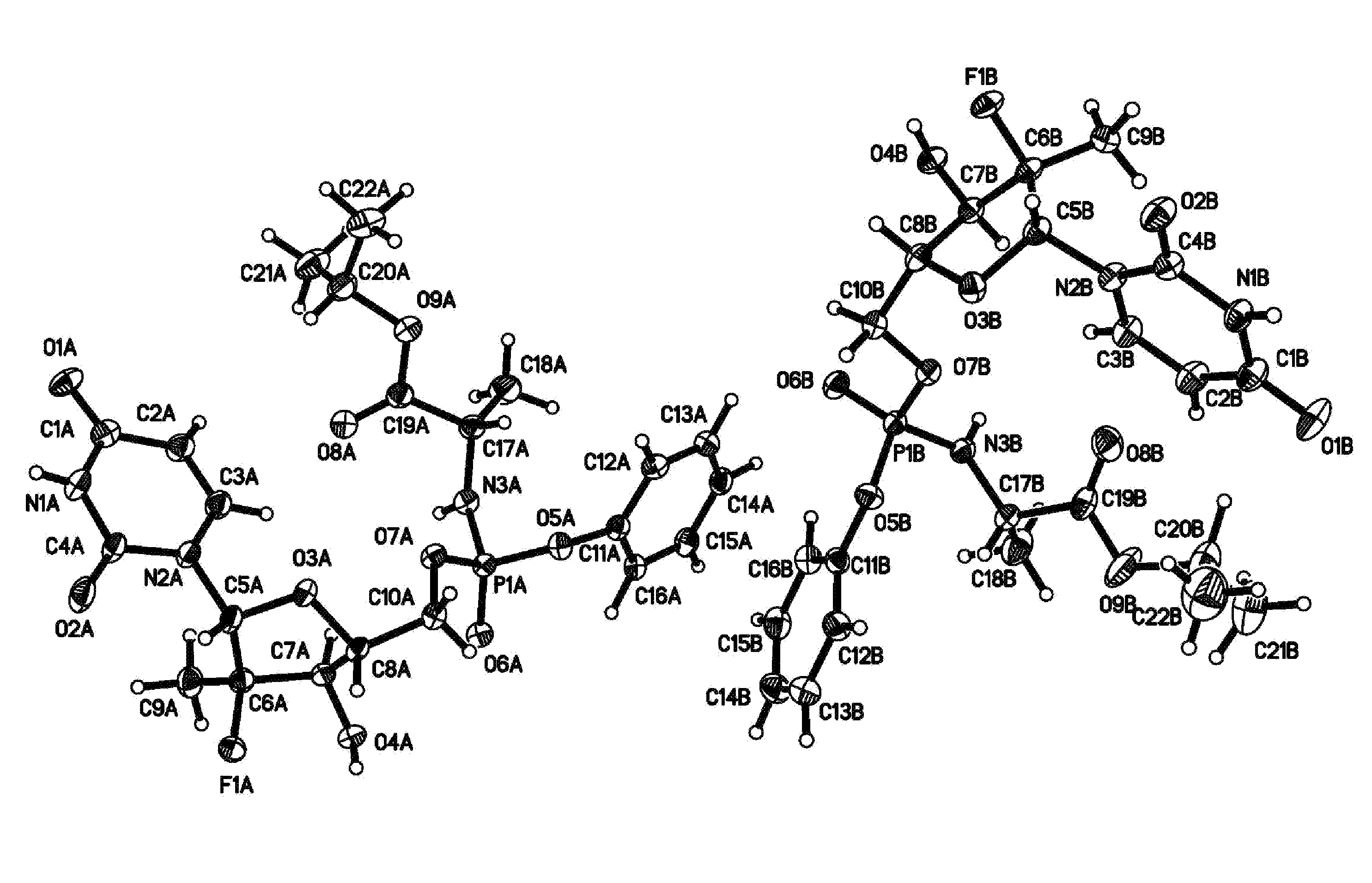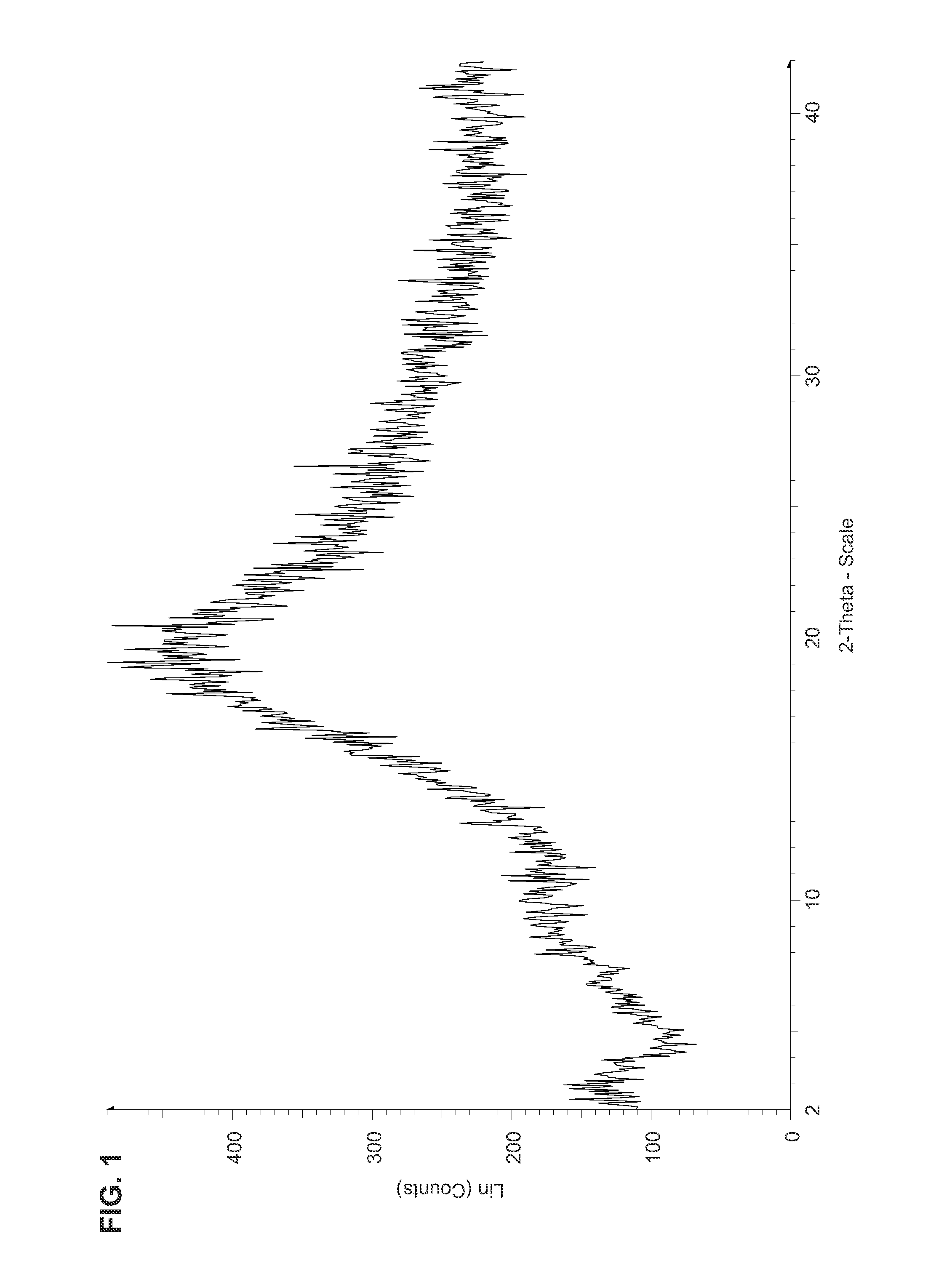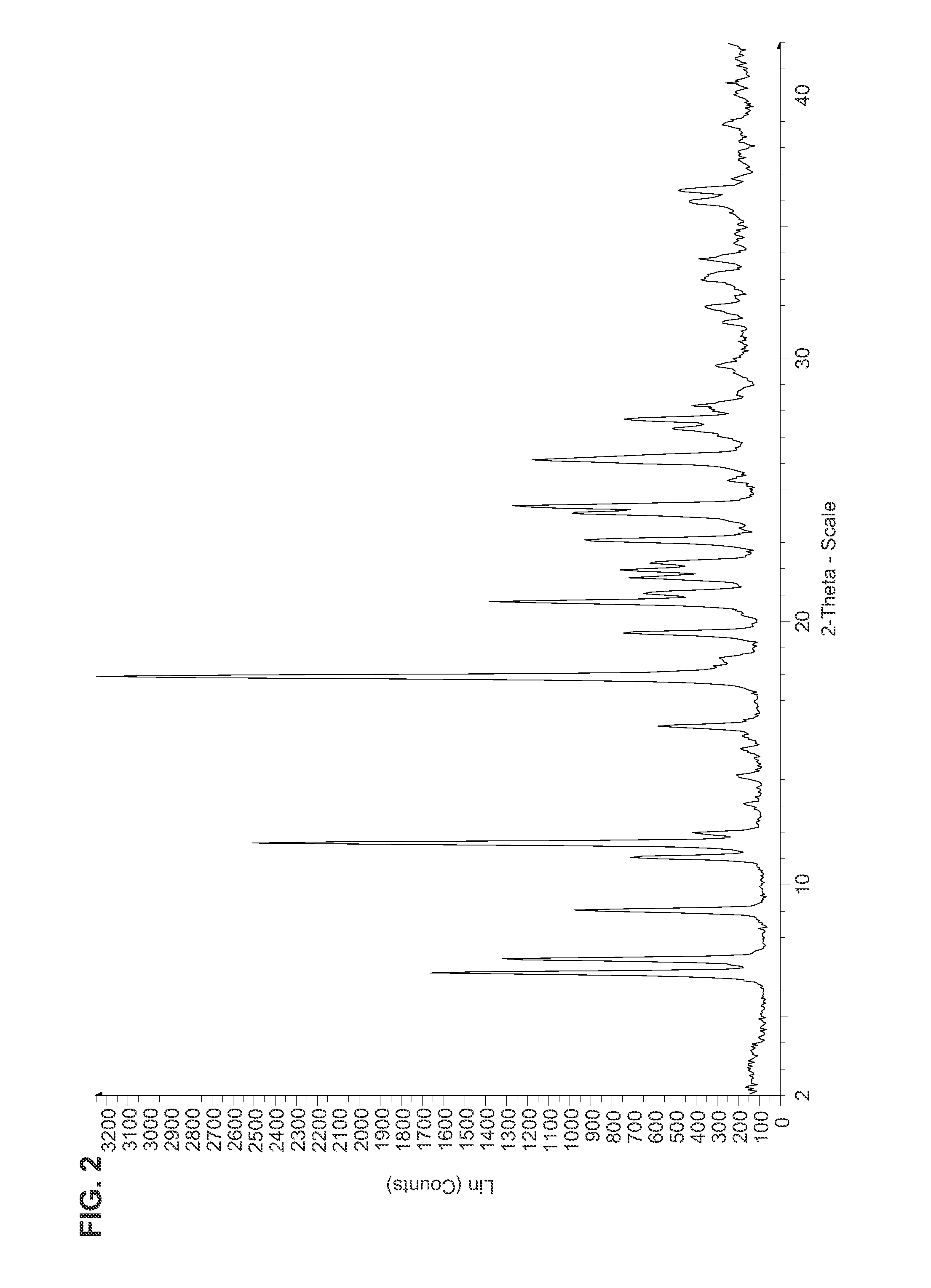Nucleoside phosphoramidates
- Summary
- Abstract
- Description
- Claims
- Application Information
AI Technical Summary
Problems solved by technology
Method used
Image
Examples
embodiments
[0078]A first embodiment is directed to a compound represented by formula 4:
[0079]wherein P* represents a chiral phosphorus atom. Due to the chiral phosphorus atom, the compound represented by formula 4 comprises two diastereomers designated as RP-4 and SP-4. The compound represented by formula 4 can also be part of a solvate, a hydrate, or a mixed solvate / hydrate. The solvate is designated as 4·nS, while the hydrate is designated as 4·mH2O, where S is a lattice solvent, n varies by an integer or non-integer amount from about 0 to about 3 and m varies by an integer or non-integer amount from about 0 to about 5. Finally, the compound represented by formula 4 might not exist as a solvate or hydrate, but have a certain advantageous amount of adsorbed solvent (S) or water. In which case, the amount of S or water can vary from about 0 wt. % to about 10 wt. % based on the weight of the compound represented by formula 4. The compound represented by formula 4 and its solvates and hydrates t...
example 1
Preparation of 2′-deoxy-2′-fluoro-2′-C-methyluridine (3)
[0178]In a 10 L flask, was added 3′, 5′-O-dibenozyl-2′-deoxy-2′-fluoro-2′-C-methyl-N4-benzoylcytidine (500 g, 0.874 mol) and 70% aqueous acetic acid (7.5 L). The solution was heated to reflux (110° C.) for 20 h. TLC indicated a complete reaction (Rf 0.6 in 5% methanol in dichloromethane (DCM)). The mixture was cooled to ambient temperature and diluted with water (2 L). After stirring for 2 h, the resulting precipitate was collected by filtration and the solid was rinsed with water (5 L) and dried in the atmosphere at ambient temperature for 12 h to afford 360 g (88%). This dibenzoyluridine intermediate was used directly in the next step by adding it all to freshly prepared methanolic ammonia (5.4 L, ca 25%) at 0° C. This temperature was maintained for 3 h and then allowed to warm to 15° C. for 24 h. TLC indicated a complete reaction (Rf 0.4 in 10% methanol in DCM). The reaction mixture was filtered through a Celite bed and conc...
example 2
Preparation of (S)-2-{[(1R,4R,5R)-5-(2,4-Dioxo-3,4-dihydro-2H-pyrimidin-1-yl)-4-(R)-fluoro-3-hydroxy-4-methyl-tetrahydro-furan-2-ylmethoxy]-phenoxy-phosphorylamino}-propionic acid isopropyl ester (4)
[0179]Synonym: 5′-O-(Isopropyl-L-alanate, phenyl phosphoramidyl)-2′-deoxy-2′-fluoro-2′-C-methyl-uridine diastereomeric mixture.
[0180]A 5 L 3-necked flask was fitted with a mechanical stirrer, brine ice bath, internal thermometer, and a nitrogen atmosphere. The flask was charged with L-alanine isopropyl ester hydrochloride (82.0 g, 0.490 moles) and anhydrous dichloromethane (0.80 L). While this was stirring, phenyl dichlorophosphate (85.0 g, 0.40 moles) was added in one lot and stirred. While maintaining the internal temperature between −5 to 5° C., a solution of N-methylimidazole (NMI, 250 g, 3.07 moles) in dichloromethane (250 mL) was added over a period of a half hour. The solution was allowed to stir for 1 h in this temperature range. 2′-Deoxy-2′-fluoro-2′-C-methyl-uridine (3, 80.0 g...
PUM
| Property | Measurement | Unit |
|---|---|---|
| Percent by mass | aaaaa | aaaaa |
| Percent by mass | aaaaa | aaaaa |
| Percent by mass | aaaaa | aaaaa |
Abstract
Description
Claims
Application Information
 Login to View More
Login to View More - R&D
- Intellectual Property
- Life Sciences
- Materials
- Tech Scout
- Unparalleled Data Quality
- Higher Quality Content
- 60% Fewer Hallucinations
Browse by: Latest US Patents, China's latest patents, Technical Efficacy Thesaurus, Application Domain, Technology Topic, Popular Technical Reports.
© 2025 PatSnap. All rights reserved.Legal|Privacy policy|Modern Slavery Act Transparency Statement|Sitemap|About US| Contact US: help@patsnap.com



